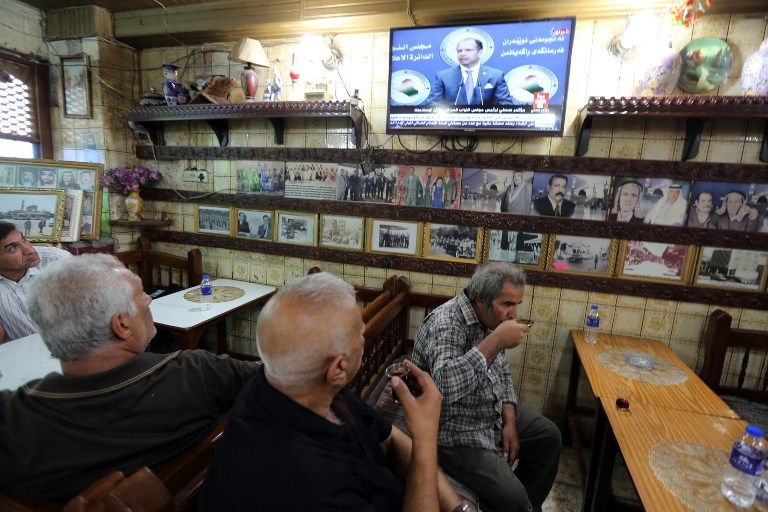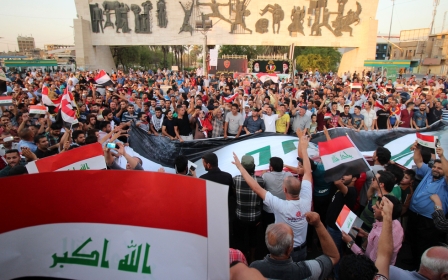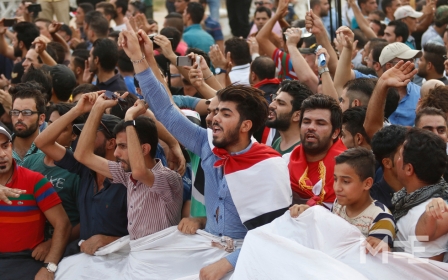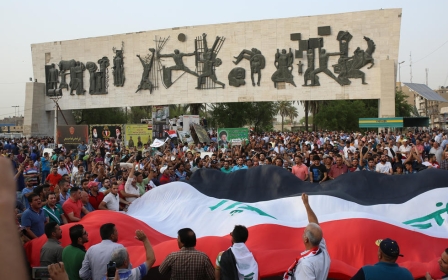Iraqi parliament backs PM's anti-corruption plan

Iraq's parliament on Tuesday emphatically approved a controversial package of reforms proposed by Prime Minister Haider al-Abadi aimed at curbing corruption and government waste.
"It was unanimously approved," parliamentary speaker Salim al-Juburi announced to applause after the vote, which was held without a debate as soon as the plan was read.
Of 328 members of parliament, 297 attended the session, Juburi said.
Abadi issued a statement congratulating the Iraqi people on the passage of the plan and pledging "to continue the path of reform even if it costs me my life".
Abadi's proposals, which includes abolishing the tripartite offices of the country's vice president and deputy prime minister, had already been approved by the cabinet. They followed weeks of protests about poor services and power outages with Iraq's top Shia cleric Grand Ayatollah Ali al-Sistani calling for drastic change.
On Sunday, thousands of people took to the streets across the country to show their support for the plan, with demonstrators flocking to Tahrir Square in Baghdad carrying Iraqi flags and posters of Sistani and Abadi.
The approval is a victory for Abadi, but the question now becomes how thoroughly the measures will be implemented, and what politicians and other officials may do to try to thwart them.
"All Iraqi politicians officially support reform and the fight against corruption but they all engage very heavily in corruption," Zaid al-Ali, author of The Struggle For Iraq's Future, told the AFP news agency.
"They have to say that they support reform, but they will work against it."
One of Abadi’s key reforms is cancelling the positions of vice president and three deputies to the prime minister. Based on the power-sharing political system that Iraqis adopted since 2004, the president (a Kurd) has three vice-presidents, a Sunni Muslim and two Shias, while the prime minister (a Shia) has three deputies, a Kurd, a Sunni and a Shia.
The president’s power is largely ceremonial, but the president’s deputies have real sway. A copy of the 2015 Iraqi budget shows that the personal annual salaries of the three vice-presidents and their 7,000 body guards costs the Iraqi treasury more than $60mn.
Other proposals include cancelling several ministries and independent commissions while merging others, freezing the finance privileges of all officials and limiting the number of governmental advisors.
New MEE newsletter: Jerusalem Dispatch
Sign up to get the latest insights and analysis on Israel-Palestine, alongside Turkey Unpacked and other MEE newsletters
Middle East Eye delivers independent and unrivalled coverage and analysis of the Middle East, North Africa and beyond. To learn more about republishing this content and the associated fees, please fill out this form. More about MEE can be found here.




